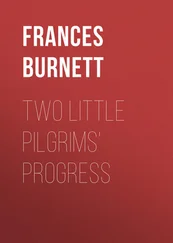“Damnit, as if I didn’t know it! Well, I’ll see. I’ll ask old stick-in-the-mud for some extra work. Or maybe I could get an afternoon’s work at the new women’s school in St. Botolph Street—”
“I see! An extra day in town every week. I knew there’d be a catch in it somewhere! As if it wasn’t bad enough already.”
“Good heaven, Ee, you can’t have it both ways! You might at least try to be reasonable! If you want more money, I’ll have to do more work — money doesn’t grow out of the ground, you know.”
“No, and it doesn’t grow out of part-time teaching at second-rate art schools either! The whole arrangement is bad. I should have thought—”
“Second-rate! Perhaps you should have thought before you married me!”
“Indeed, yes! Perhaps I should!”
“Now, Endor, darling, listen—”
“I should have thought, if you don’t mind my saying so for the hundredth time—”
“Make it the thousandth, why not—?”
“Will you please listen to me? — that a whole-time job in town was the only possible solution.”
“Oh, my god. Must we go into that again? You seem to be forgetting that I’ve got my own work to do. Or to try to do!”
“Your own work. Of course! I suppose you still think that must come first. It doesn’t matter if we have to go without proper clothing, does it, or have all the shopkeepers dunning us month after month—”
“You needn’t exaggerate — and there’s no point in being melodramatic about it either.”
“I’m afraid it’s the facts that are melodramatic, since you choose the word, and not me. Oh, no! But this is where discussion always ends with you, isn’t it? In an accusation. I’m in the wrong, as usual! But I think we’ve reached the limit, and I think you’d better consider what you’ll do.”
“Ee darling, you know I’ll do anything I can, but you can’t expect me just to give up my own work, offhand, like that! You can’t!”
“If you’d wanted to do portraits—”
“I don’t want to do no portraits, no, ma’am !”
“The upshot seems to be that I do a great deal of your work for you.”
“ That’s a new view of it!”
“It’s true. You’d better think it over. And if you don’t mind too much, will you take Buzzer out this morning? I’ve got all the ironing to do.”
“I thought Mrs. Kimpton was coming to do it.”
“We can’t afford it. And besides, as I ’ve told you before, she’s not clean.”
“Not clean! How can that possibly affect ironing!”
“I won’t have her in the house with that dreadful feather boa round her neck.”
“Very well. When I’ve laid the studio fire, and carpet-swept this room, and made my little bed, my little solitary bed, and carried in the wood—”
She was just rising, just saying her ironic “thanks!”, her eyes widening and brightening as if to let him see better the intensity of her unspoken anger, when the sound of bird-note whistling came cheerfully from the garden, the bird-fluting of Mr. Paradise, the butcher — Paradise, absurd name for a butcher! — and the white-coated figure went quickly past the dining room windows to knock at the kitchen door.
“All right, Endor. And there goes our twenty-nine dollars. And if Ratio Binney comes about the cesspool while I’m out, you’ll have to deal with it yourself. That’s all I can say!”
Dispersed, interrupted for a moment, disturbed, whirled aside like the morning fog on a current of air, in idly glistening and lazy convolutions, the indiscreet dream about Nora was turned away only to return again, all-surrounding, all-entering, all-coloring: its hands were his own hands on the rumbling carpet sweeper — the sweeper carpet, Buzzer called it, trotting behind him, pretending she was a horse — it maneuvered with him under the dinner table, bumped the gate-legs, rattled out from the faded Chinese carpet onto the bare black floor boards at the sides (for Buzzer these were oceans, very dark and cold and deep) and followed sinuously every familiar curve and slope of the ancient uneven floor. It licked up the breakfast crumbs — it was the breakfast crumbs. It was the Chinese embroidery of motionless birds and dragons, the silent but alert piano — ready at any moment to burst out in the C-sharp minor Prelude, or the Cathédrale Englouti , or the little Brahms waltz — it was the all-too-eloquent thump of Enid’s iron on the ironing board in the kitchen — it was the whole house, himself, everything. Strange — very strange — he must be hallucinated. Why should a dream be so damned persistent? It was everything, but also, subtly and dangerously, it changed everything. The near at hand, certainly — but the remote no less, too. The fireplace in the studio, with the wood ash neatly brushed back from the brick hearth, to make a soft ashen wave under the andirons; the red scaly pine logs, brought in from the woodshed in the fragment woven-wood basket; the crisp pine cones tucked under the crossed logs for kindling, the bright brass jug of the Cape Cod fire lighter standing as if expectantly in its corner — it was in all these as he touched them, watched eagerly by Buzzer, her hands flapping excitedly, but it was also just as importantly discoverable and discernible in the far-off or merely imagined. The river, moon-tide brimmed, hurrying down to the Sound, past the sand dune and the derelict breakwater (ah, what a wonderful nocturnal fire that had been), and then, beyond the iron-framed lighthouse, joining the sea in the quarrelsome tiderip — it was there, too, tossing Paul’s canoe, spanking the under bow of George’s catboat. It was the sea gulls screaming over Mr. Riley’s nets and bobbing lobster buoys, offshore; or, inland, at the head of the river, the harsh har-har-har — har-har-har-har of the crows, the high bright circling of the eagles. Somehow, through that luminous and all-permeating dream, Nora, who had never been to the Cape, never even seen this little village, had taken complete and magical possession of it. Possession — of course, the very word for it — it was possessed, he was possessed — it was a kind of witchcraft, a sort of effluence from the unconscious, a psychic wave which had washed over the world and given it a new and astonishing brilliance. Everything, in that current, looked suddenly more alive, glowed importantly in its own light and right, seemed to have taken on an added and peculiar significance: the grains of wood, the texture of the linen sheet as he smoothed and folded it, the pillow as he patted and plumped it, the fluttering and sucking of the muslin curtains against the fog-bright screens. And the lilac trees, as he looked down at them from the bedroom window, resting his hands on the low sill, the lilac trees in the fog, which Chattahoochee was now investigating with tolerant curiosity, were already as good as in blossom. It was June of another year — another summer, another love.
Another summer, another love. The slow pang, melancholy, delicious, recapitulative, filled his breast, extended down his forearms, even to his fingertips — it was a physical thing, as actual as pain or fear. In the Purington house next door someone had put on that everlasting record, the worn-out record, and the blurred magnified words added themselves satirically to the odd and exciting theme, the threat of a crumbling world.
In the morning,
In the evening;
Ain’t we got fun?
Not much money, but, O honey,
Ain’t we got fun?
The world was made, dear,
For people like us —
The words followed him, fading, as he went down the stairs, became a meaningless gabble, then reappeared stridently as he entered the studio again and turned the easel for a look at the half-finished painting.
Читать дальше












